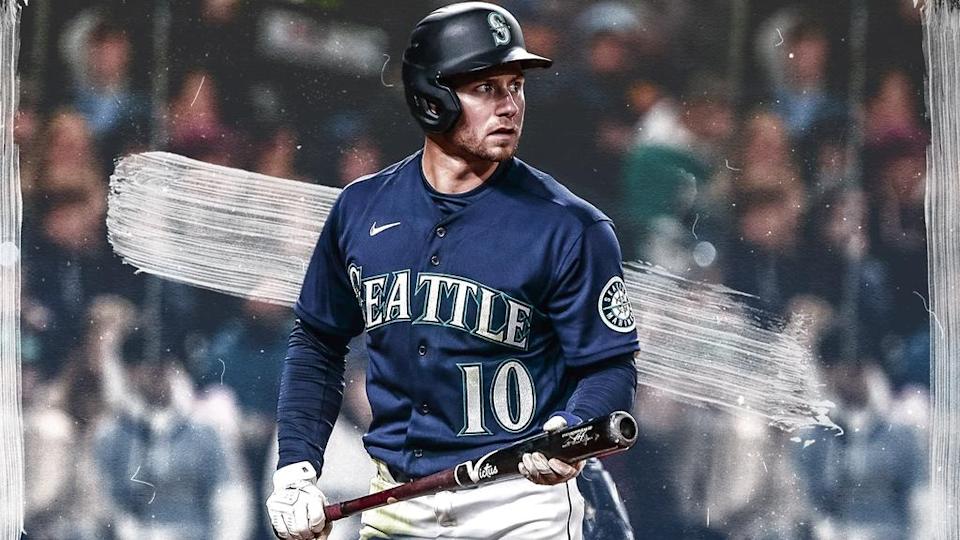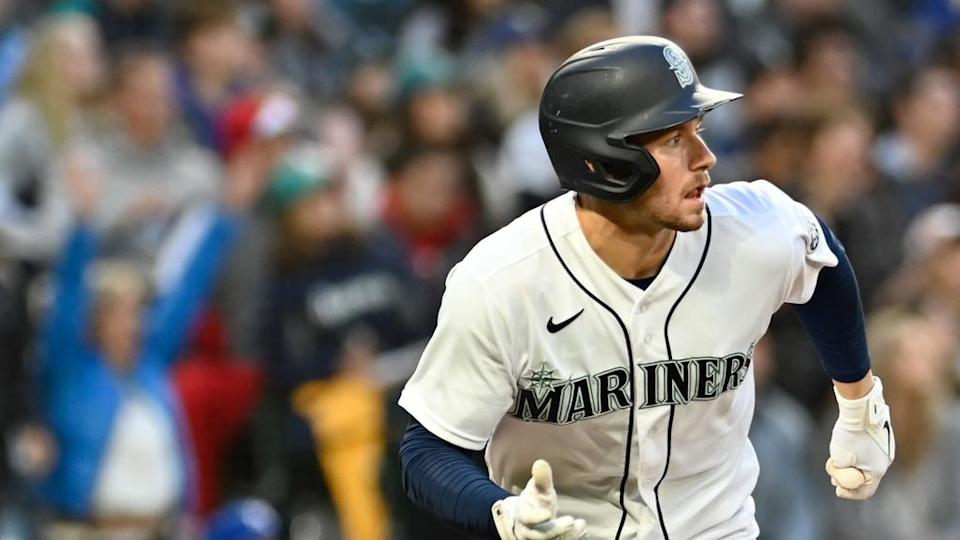
With Jarred Kelenic‘s career with the Mariners off to a disastrous start, the revisionist history surrounding his trade from the Mets to Seattle has started.
Over the last week or so, with Kelenic set to face the Mets for the first time since the trade, a bunch of different iterations of “The Mets’ trade of Kelenic doesn’t look so bad now” and “Have the Mets won the Kelenic trade?” have been popping up.
The problem? The Mets’ trade of Kelenic can never be good. Before we dive into why, let’s take a trip back in time to November of 2018…
At first, the idea that the Mets were even discussing the possibility of including Kelenic in the trade that brought Robinson Cano and Edwin Diaz to New York seemed like a joke.
The thought at the time went like this: The Mets shouldn’t even ponder including one of the most highly thought of prospects in baseball in a deal that amounts to a salary dump for the Mariners — a deal that would have the Mets doing Seattle an enormous favor by ridding them of the final five years of Cano’s deal while taking on most of the financial burden.
For the Mets, their reward for taking on most of Cano’s contract while also dealing Jay Bruce — with Cano entering his age-36 season just one year removed from a PED suspension — would be Diaz. There was no reason why they would have to give up such a valuable asset (Kelenic) while taking on such a distressed one (Cano).


Now, for those who think I’m engaging in my own revisionist history, that is not the case. And there are receipts.
Here’s what I wrote on Nov. 29, 2018, before the trade happened:
In iterations of this deal that had the Mets getting Cano and Diaz while unloading Bruce and giving up a prospect of the non-Kelenic variety, it seemed too good to be true. A deal that has the same general parameters but includes Kelenic? That would be too bad to be true.
The idea of getting Cano (who is 36 years old but still highly productive) while unloading Bruce and adding arguably the best closer in baseball is tantalizing. But if it comes at the expense of Kelenic, the Mets should move on and simply sign one of the many high-impact relievers available on the free agent market.
Yes, many prospects flame out. But so do relievers. And trading the kind of high-impact player Kelenic could be in the deal for Cano makes no sense. Justin Dunn? Sure. Andres Gimenez? Sure. But Kelenic should be off limits.
At this point, I’ll note how valuable Diaz has been as a Met. They should be incredibly thankful they have him and should be making a strong effort to extend him. But again, it should not have taken Kelenic to get Diaz — not when the Mets were taking on Cano’s contract. Another prospect with much lower value? Fine. But not Kelenic.
And that brings us back to why the Mets trading Kelenic in the Cano and Diaz deal will never be good, no matter how Kelenic’s career turns out.


If Kelenic flames out so badly that he’s out of the league in a few years? The Mets still made a mistake by trading him in the deal for Cano and Diaz.
If Kelenic becomes an average player? The Mets still made a mistake by trading him in the deal for Cano and Diaz.
If Kelenic rebounds and becomes a star? The Mets still made a mistake by trading him in the deal for Cano and Diaz, and it will sting that much more.
To reiterate, the Mets traded a top prospect with huge value in a deal where his name shouldn’t have even been allowed to be discussed. It was a terrible allocation of resources, and that can’t be erased.
That doesn’t mean the Mets shouldn’t be thrilled by what they’ve gotten from Diaz (and what they’ll hopefully continue to get from him beyond this season).
And it doesn’t mean that they were unable to absorb the hit of Cano’s sunk cost. Steve Cohen giving the Mets clearance to move on from Cano (who will land with the San Diego Padres) earlier this season was enormous, and helped blunt the mistake that was acquiring him in the first place.
But you can’t get back value that was wasted. And no matter how Kelenic’s career turns out, the Mets trading him in the manner that they did will always be a waste.
